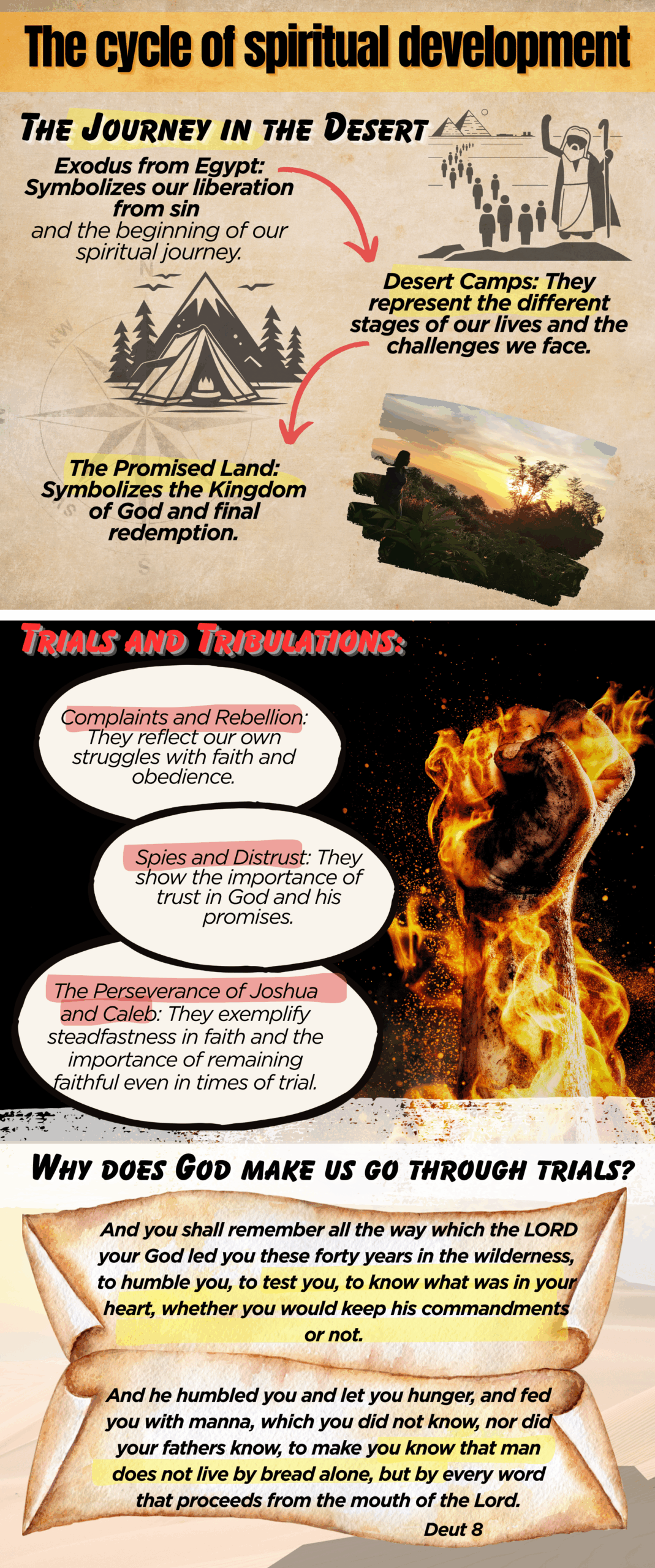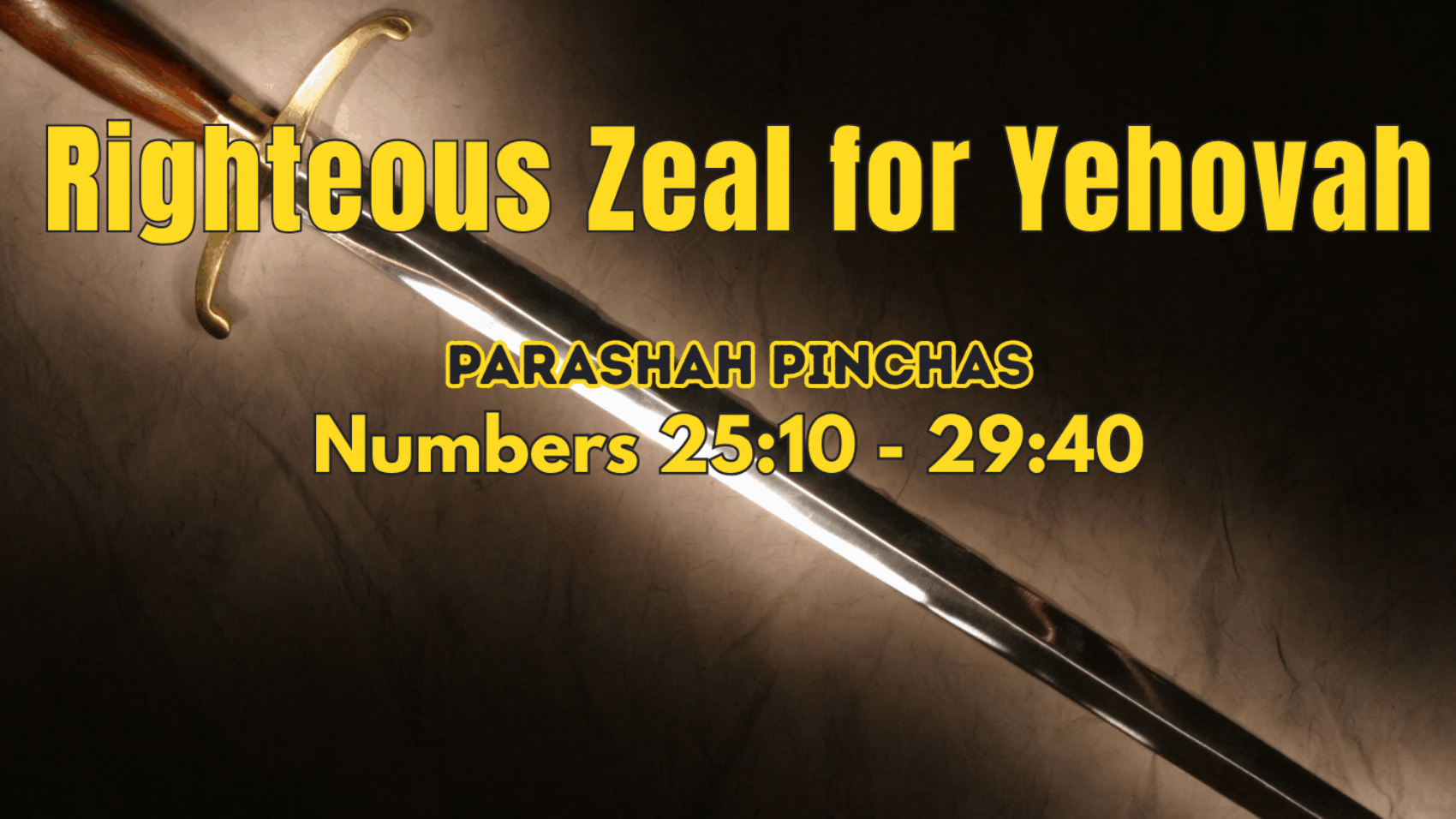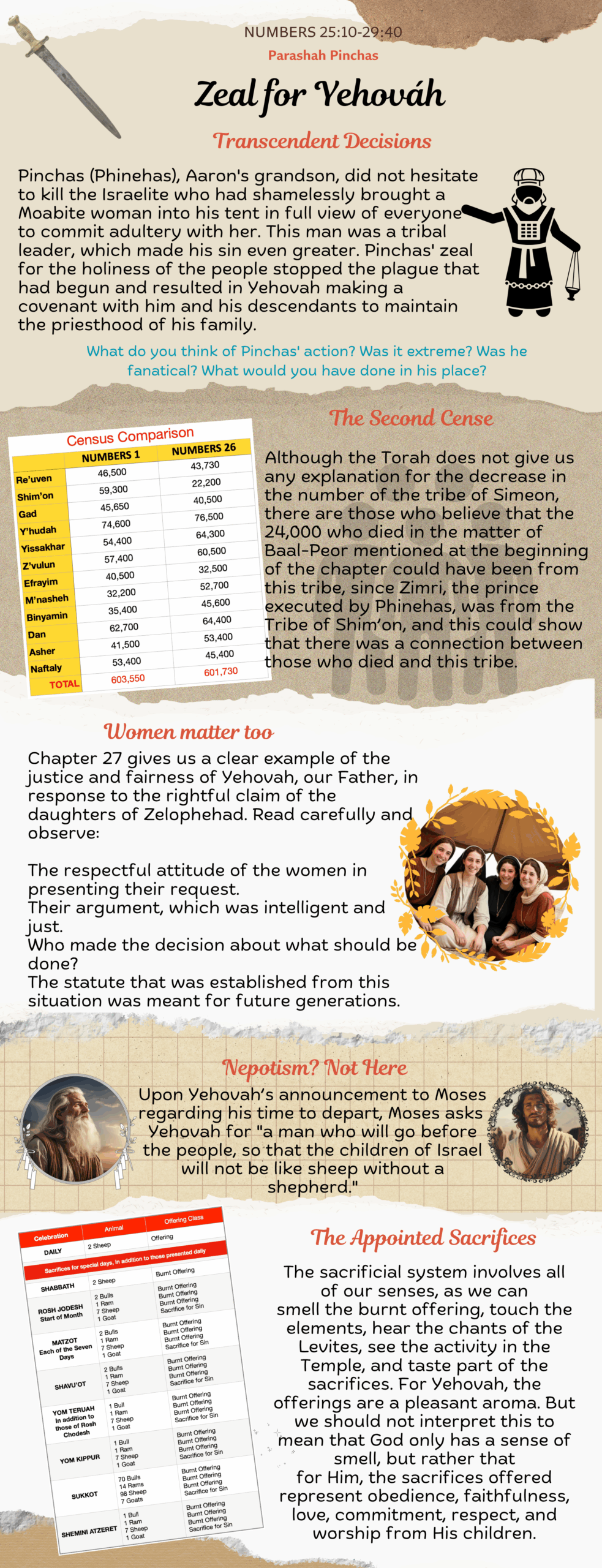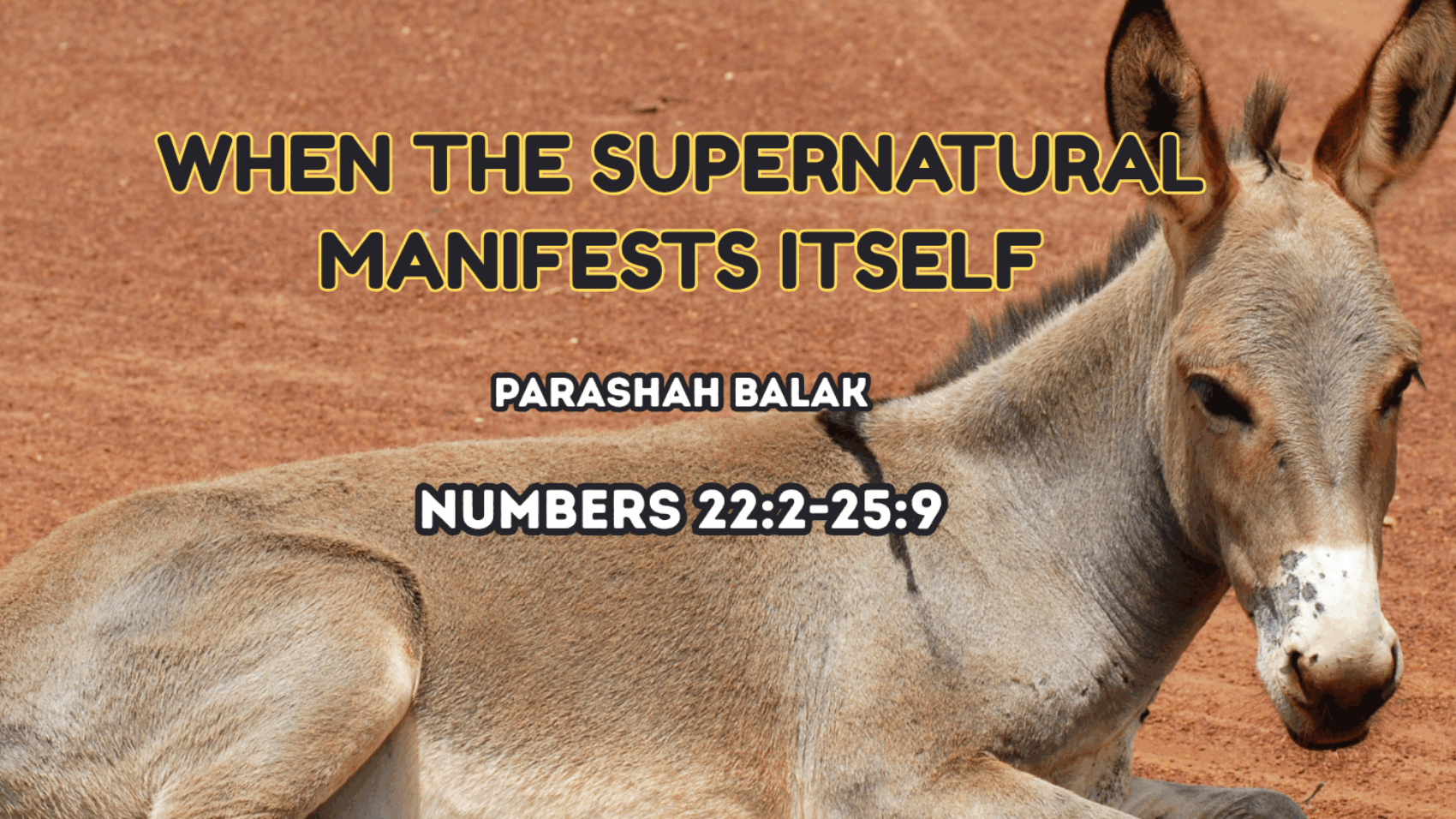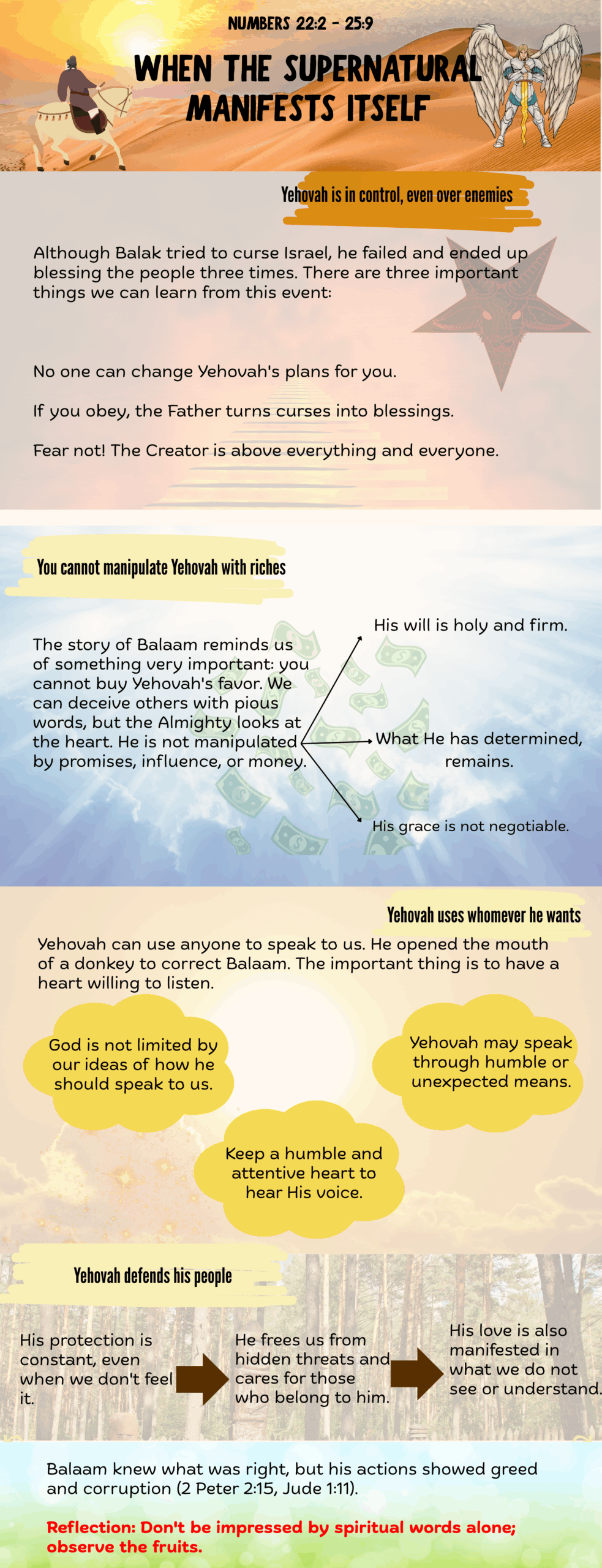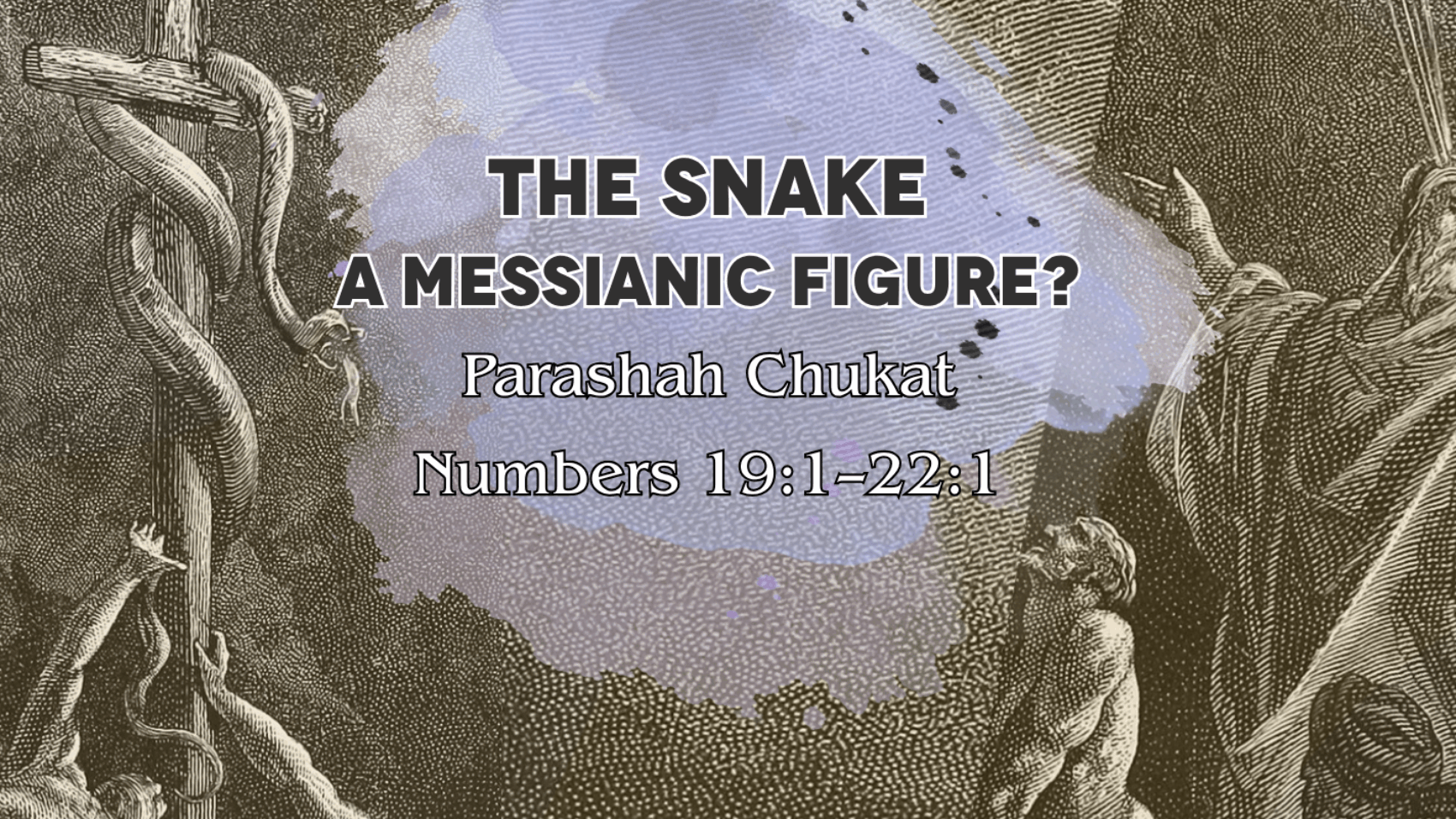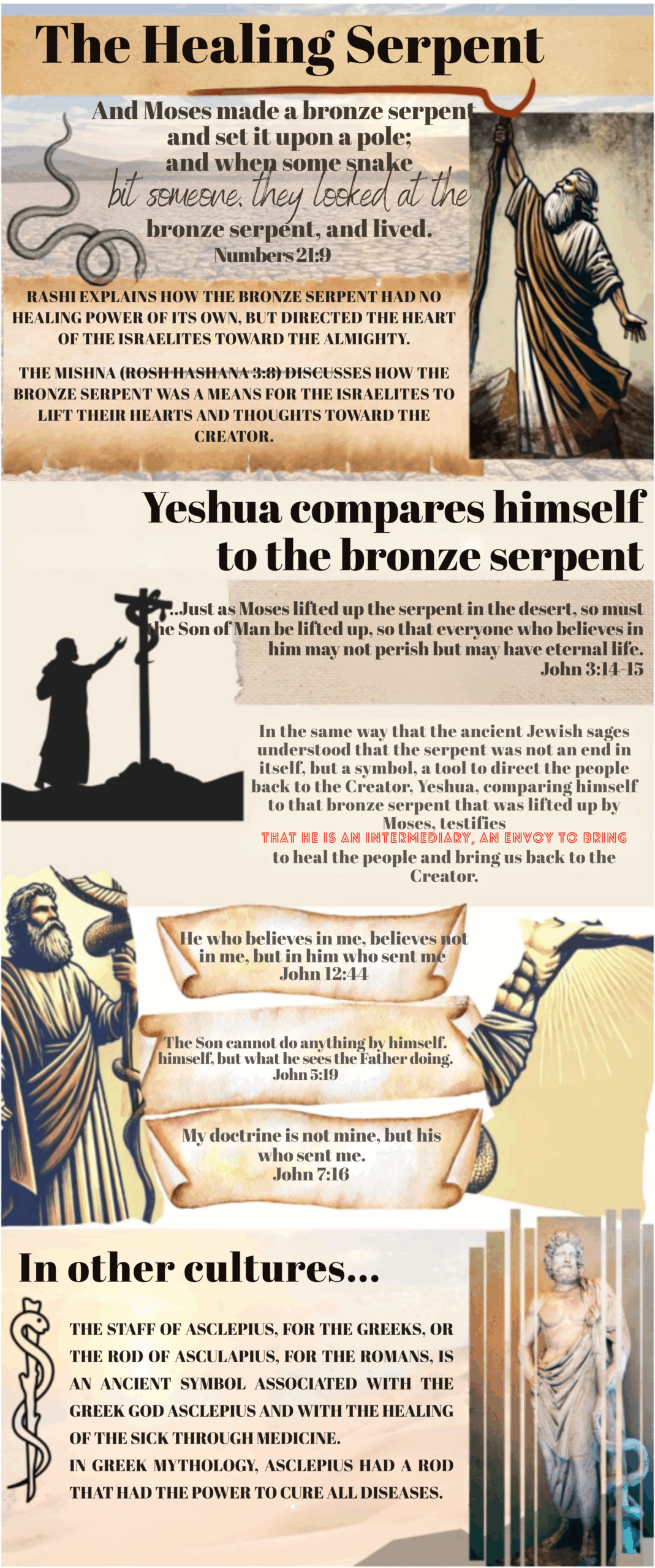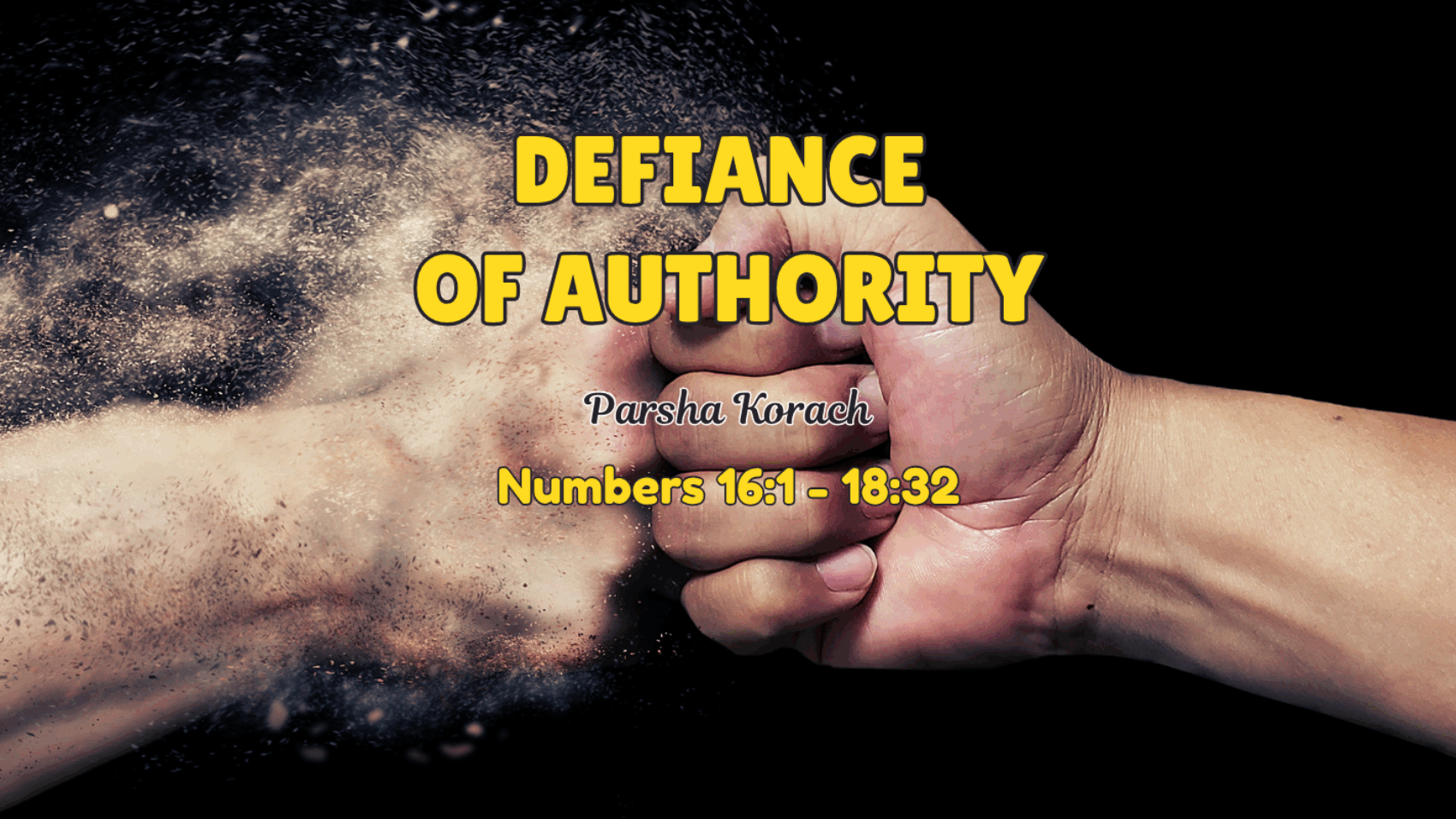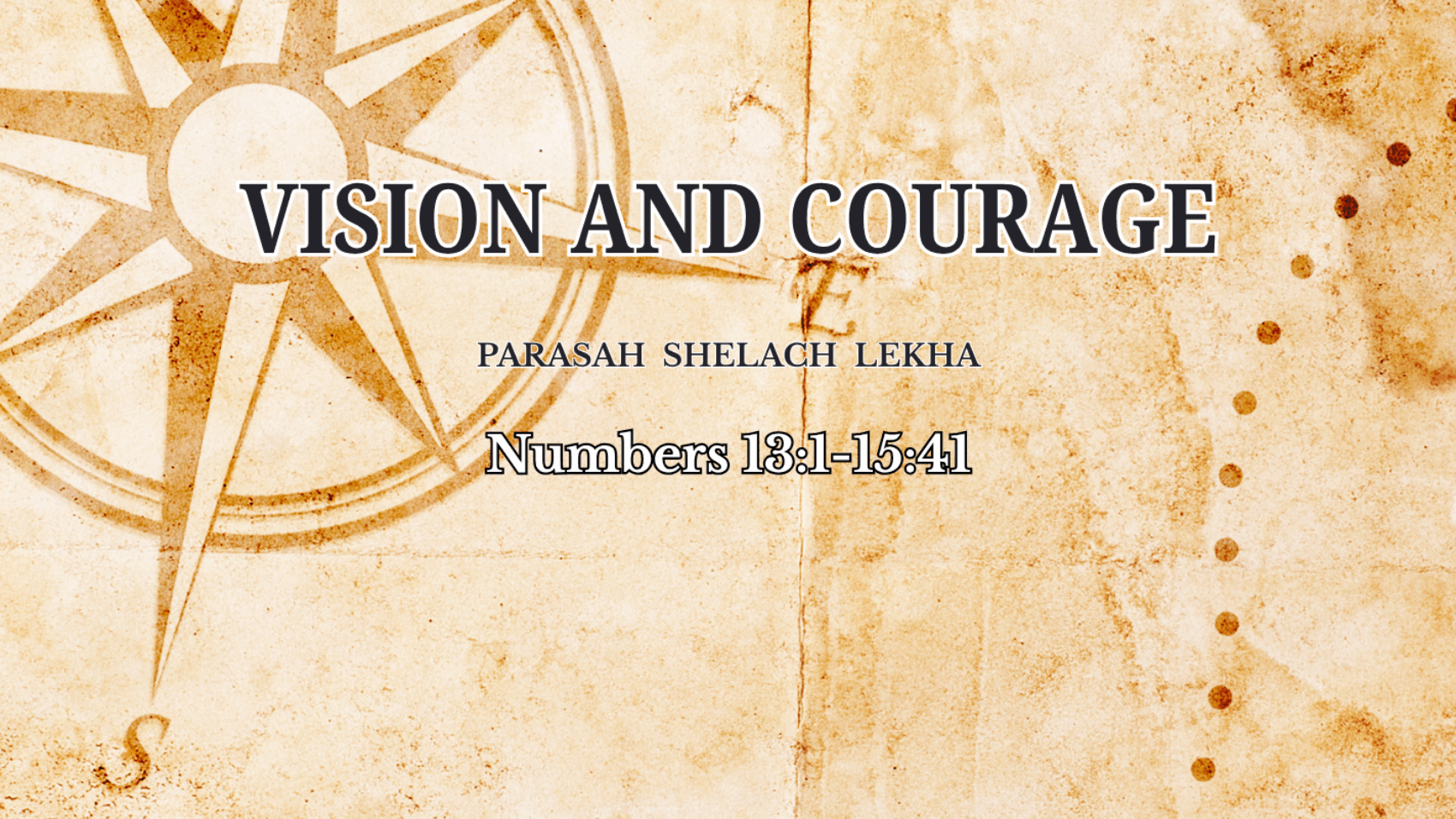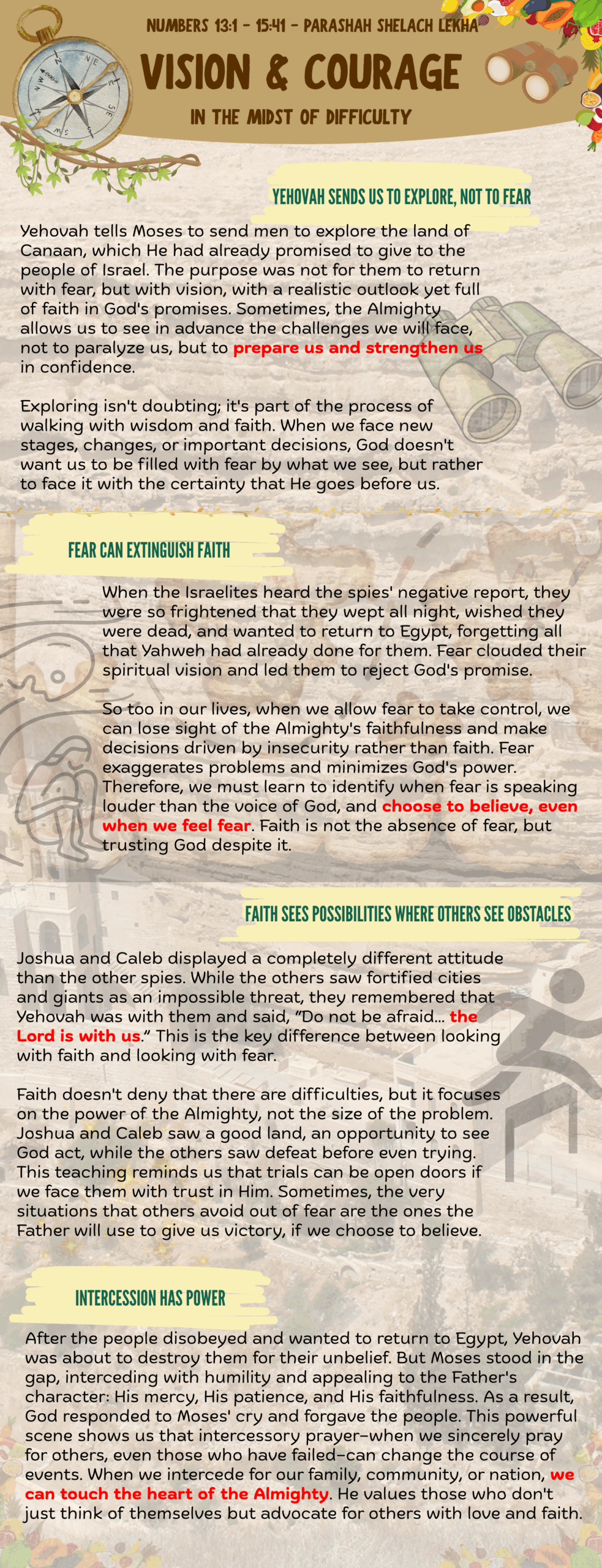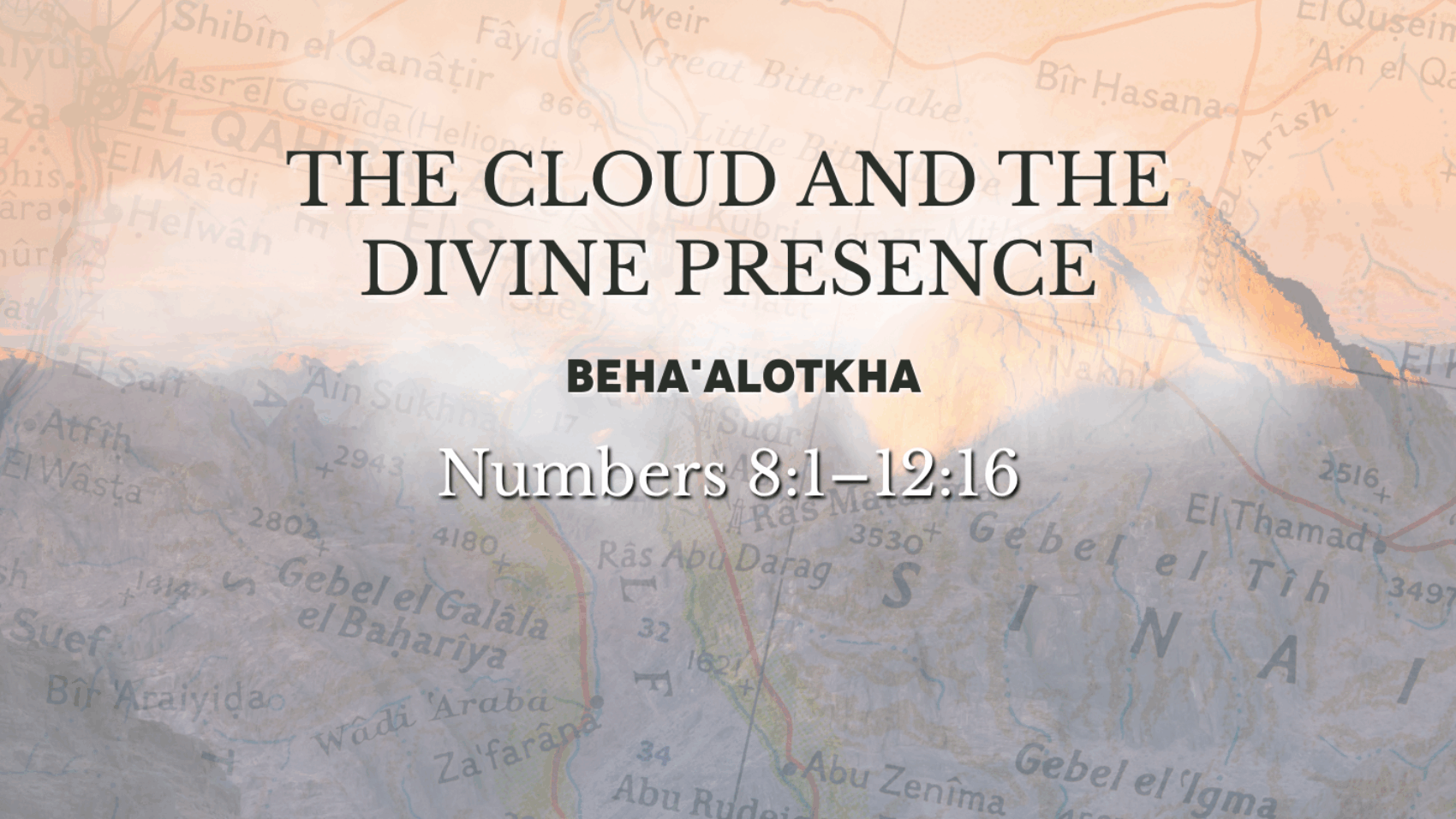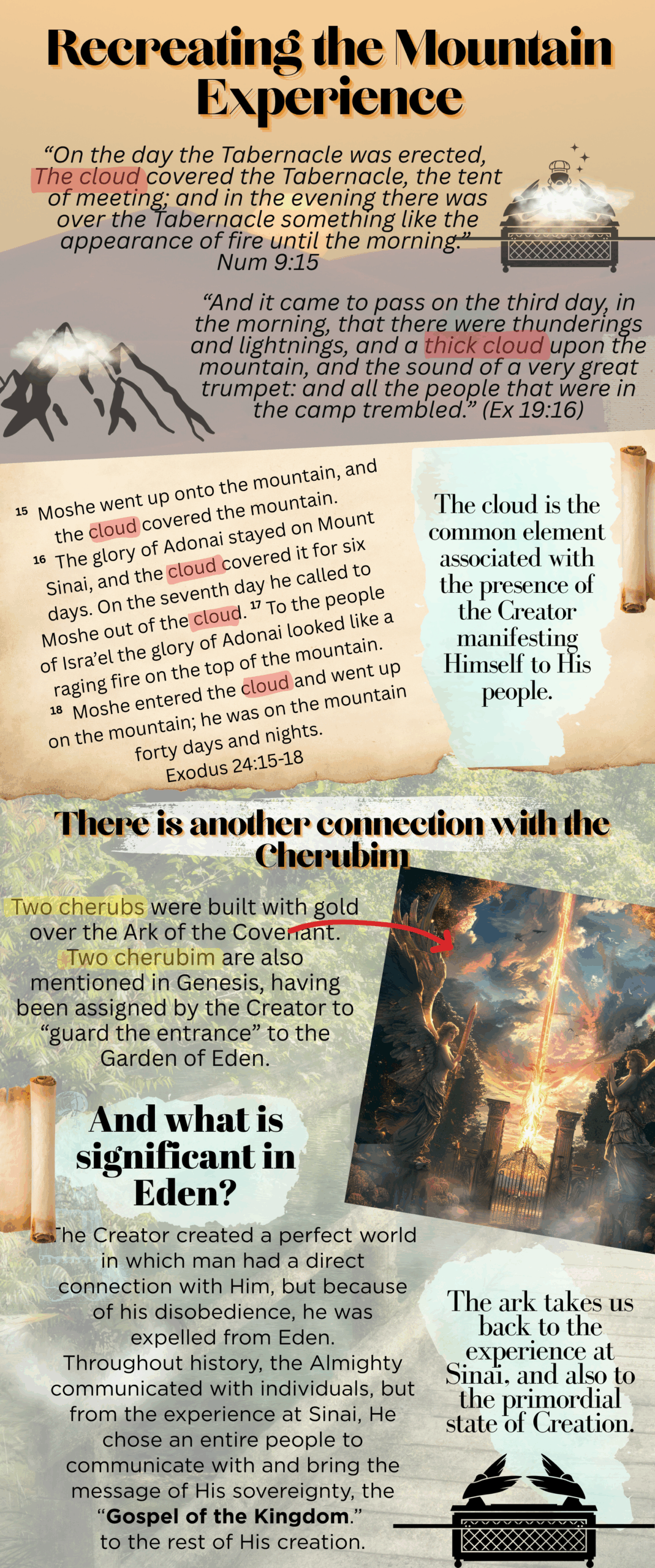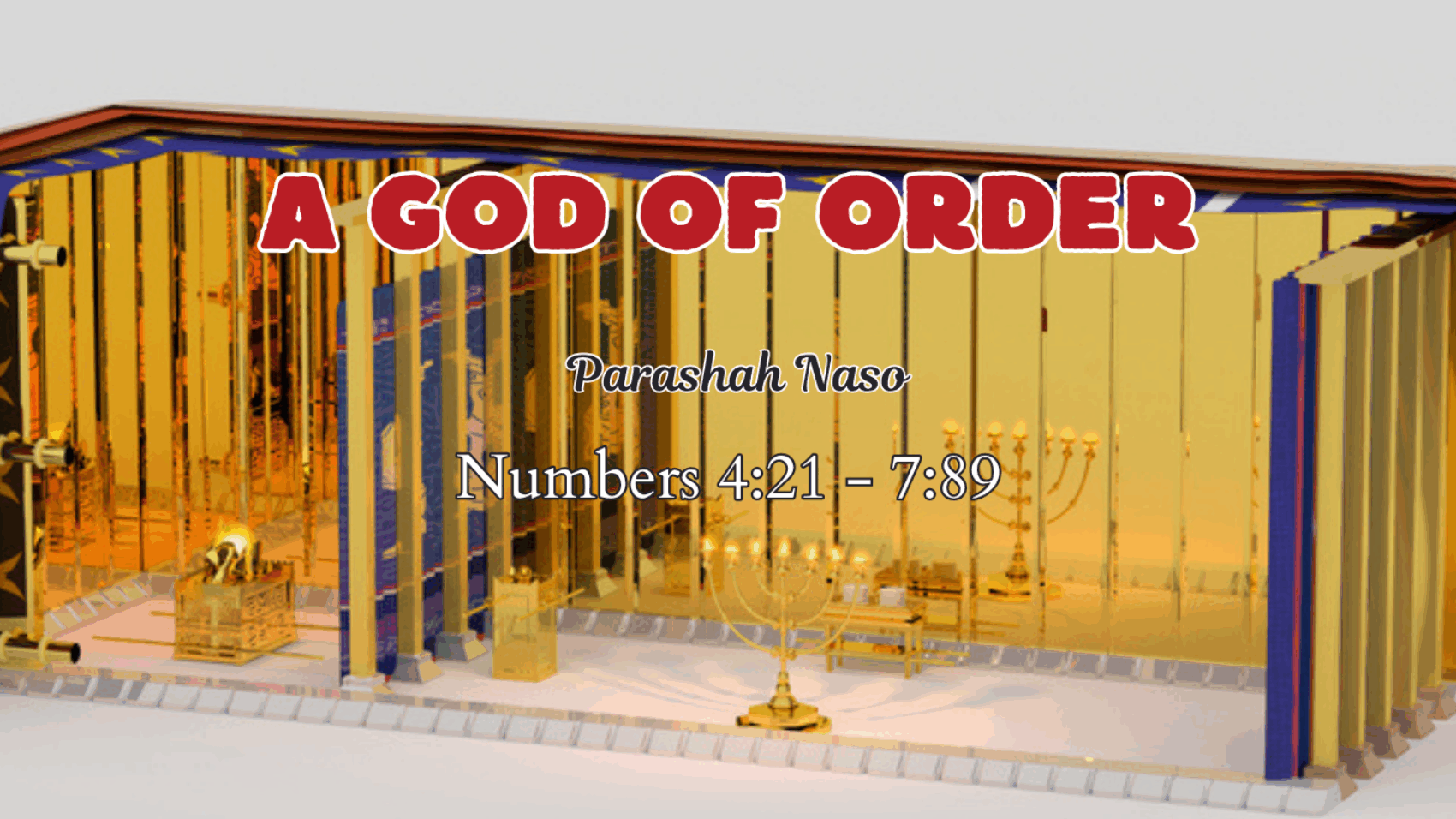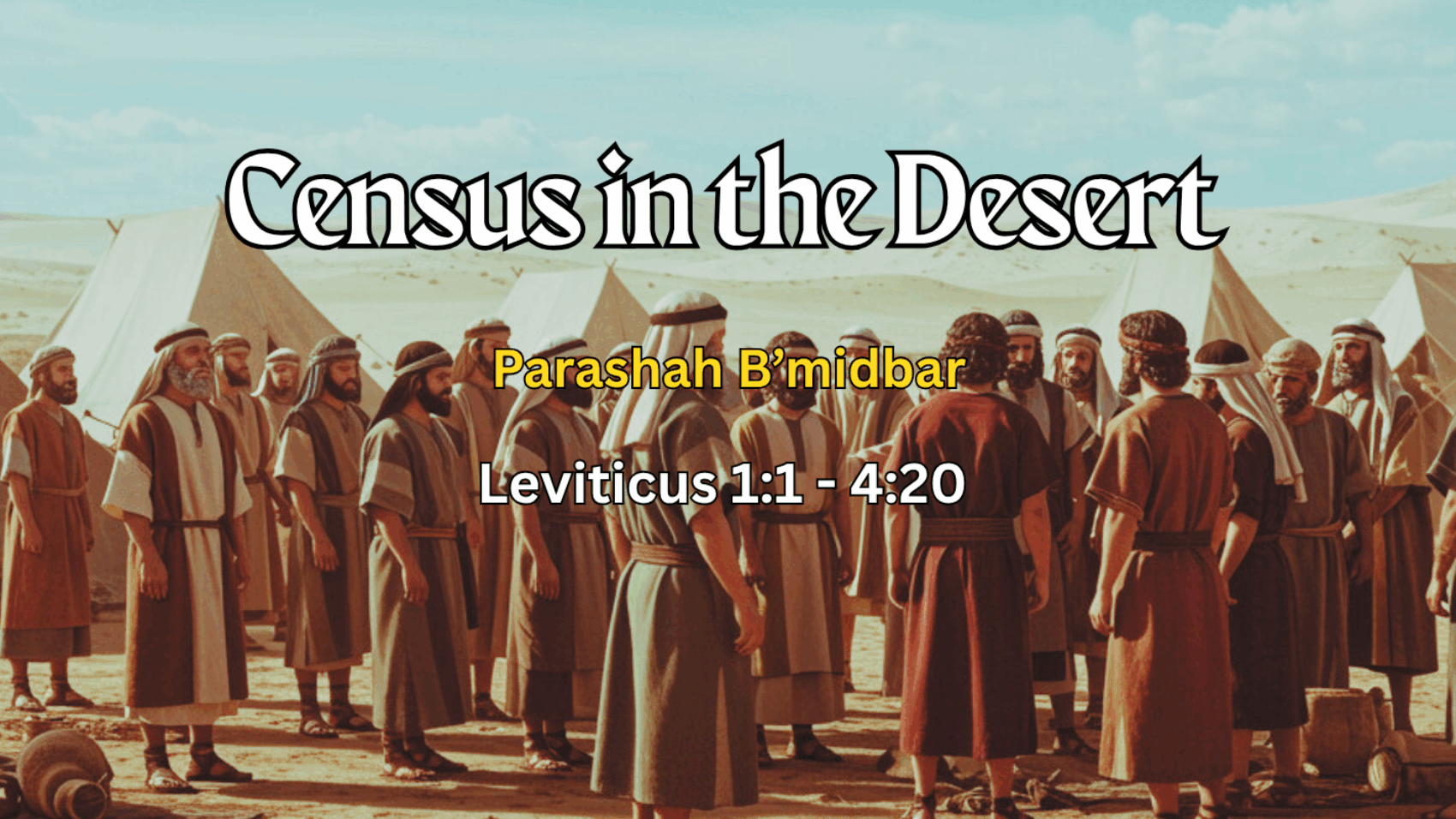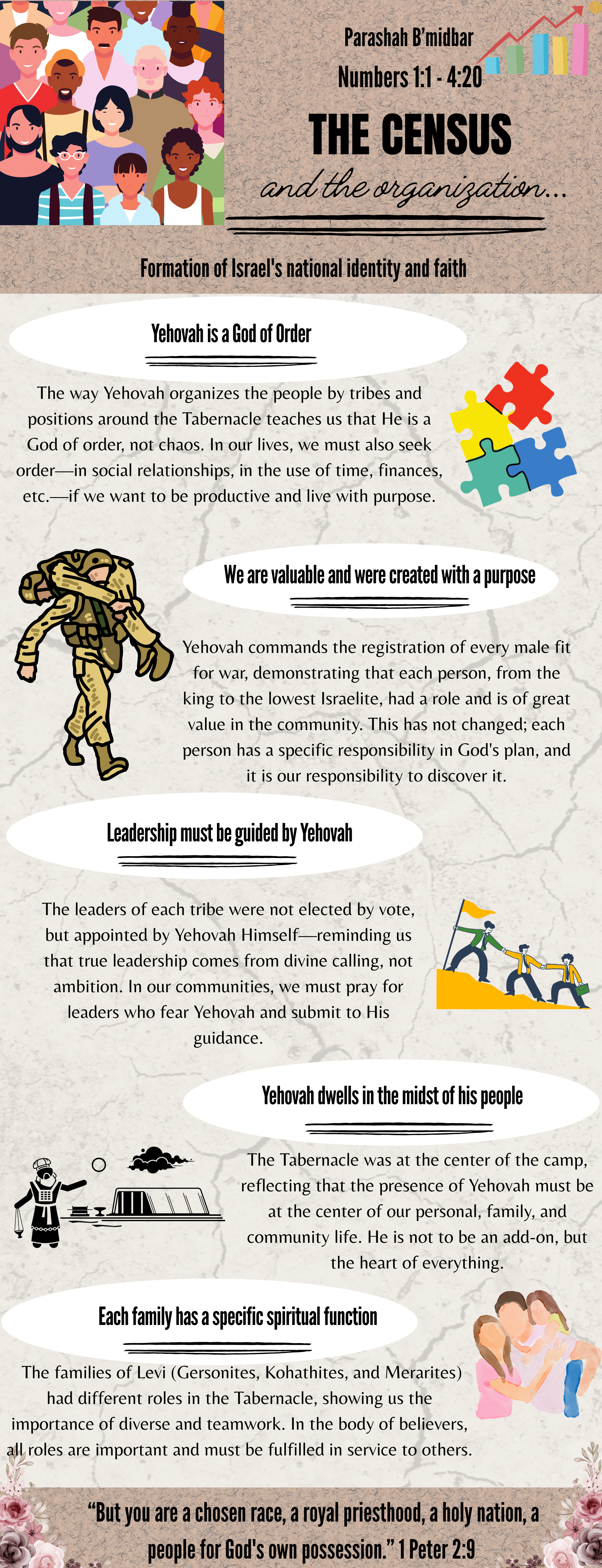Parashah D'varim
Deuteronomy 1:1 – 3:22
The Parashah Devarim is the first section of the book of Deuteronomy, which serves as a summary of the Torah of Yehovah. It focuses on Moses’ speech to the people of Israel, in which he reviews the events and lessons from the forty years of wandering in the wilderness. Moses recalls the journey of the people, the instructions of Yehovah, and the decisions that were made, including the appointment of leaders and judges.
This takes place shortly before Moses’ death, in the region of Moab, specifically on the eastern side of the Jordan River, across from the city of Jericho. The account serves as a preparation for entering the Promised Land and reminds us of the importance of obedience to the Most High and observance of His commandments.
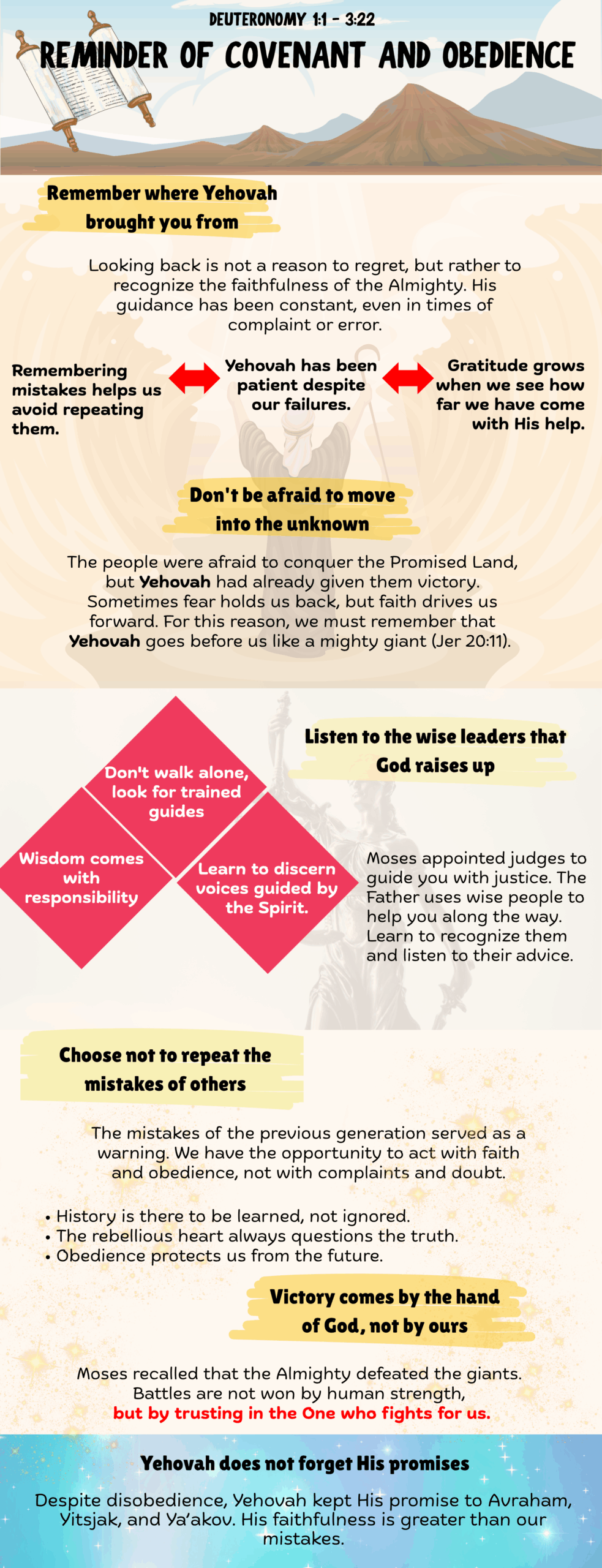
The story of Moses, who was not allowed to enter the Promised Land because of a mistake he made, reminds us that we are all responsible for our actions, regardless of our position or status. The justice of Yehovah is impartial, and we must be aware of the consequences of our decisions and actions.
Teaching: Learning from mistakes.
The fact that Moses carefully reviews the faults and complaints of the people shows his desire for them not to repeat the same mistakes in the future. In the same way, as Paul says in his first letter to the Corinthians:
“Now these things happened to them as examples, and they were written for our admonition, upon whom the ends of the ages have come.” — 1 Corinthians 10:11.
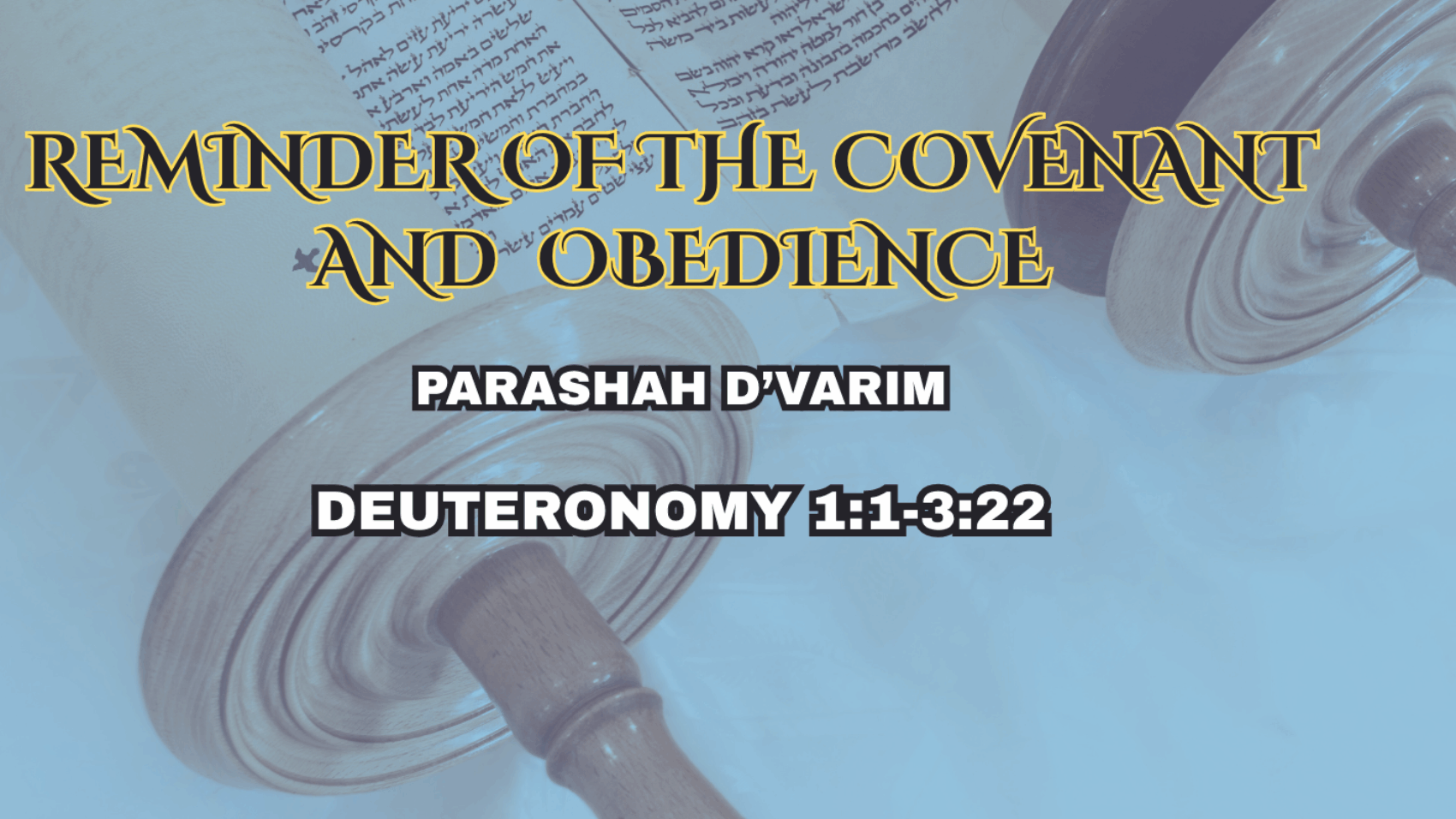
![Copy of Blog Tetzavé [cabecera]](https://aroodawakening.tv/wp-content/uploads/2025/07/Copy-of-Blog-Tetzave-cabecera-e1753365494489-1700x956.png)
